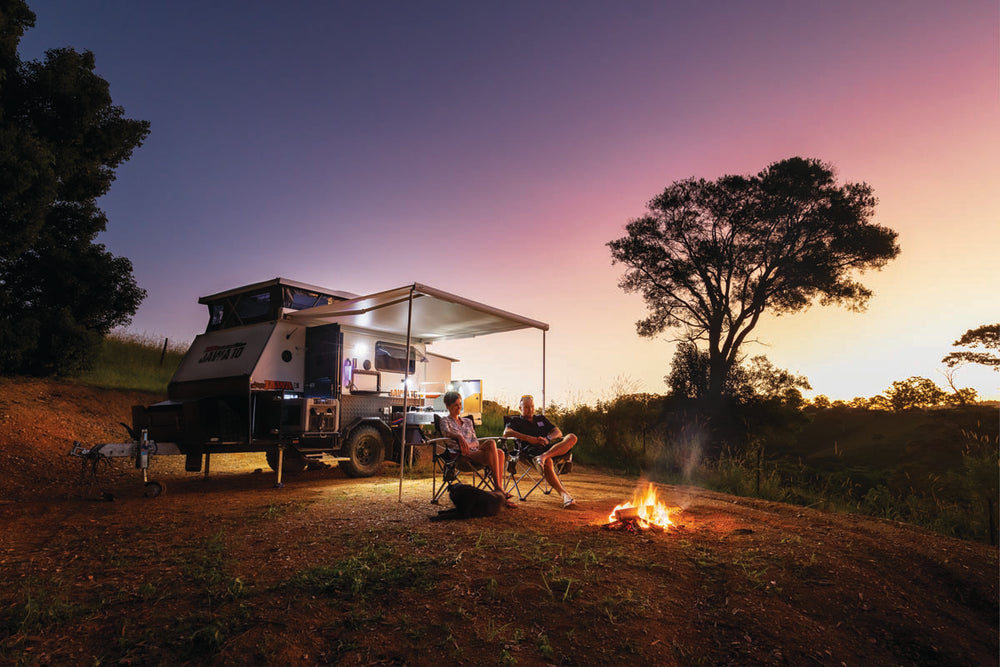TOP TECHNOLOGY FOR LIVING OFF THE GRID
SWITCH TO LED
An electrical item that has moved forward in great strides in terms of better, more efficient lighting and reduced costs is LED lighting. It’s a great way to reduce battery current draw when you’re off the grid, but still have effective illumination.
Just about all RVs manufactured these days have full LED lighting, but what about older rigs? The good news is that they too can benefit from LEDs. It’s now possible to purchase LED fittings that replace older incandescent globes and, in some cases, halogen fittings. If that isn’t available, then changing the entire light fitting shouldn’t be too difficult. Another advantage of LED fittings is that, in addition to downlight/reading light fittings, LED strip lighting can be used in any number of places to light up your night.
LITHIUM BATTERIES
Although lithium-ion batteries have been used for some years in smaller appliances, the LiFePO4 version’s development for use in larger appliances like caravans has been a little slower. One reason is the higher cost compared to conventional deep-cycle batteries and another is the ability to handle mechanical stress (ie., bouncing along the road).
However, these problems are being solved with time and development, and lithium batteries are becoming more common. Their principle advantage is they are smaller and lighter than other batteries of similar capacity, so great for off-grid scenarios.
Because they are still relatively expensive, lithium batteries currently only really benefit those who have a high 12V load or a heavy rig and really need to shed some kilos. However, depending on requirements, they could be considered an alternative to solar panels. Anyone considering a retrofit should remember that an appropriate battery management system should be included in the costing.
GREY WATER TANKS
While just about all motorhomes and fifth wheelers are fitted with grey water tanks as standard, most caravans are not. Interestingly, in their respective definitions of being fully self-contained, the Caravan and Motorhome Club of Australia includes having a grey water tank fitted as mandatory but the Australian Caravan Club does not.
While there are a considerable number of places around Australia that grey water is desirable for watering the grass, there are other, eco-sensitive places (for example, beside rivers and marshlands) where it would be better if it could be tanked and disposed of later. And in some areas, dumping grey water is prohibited entirely.
For vanners who don’t or can’t fit a grey water tank, one good idea is to filter the grey water by placing a ‘sock’ made from a Chux wipe or similar over the end of the drain hose – it collects the solids but lets the grey water through. Another interesting solution I have seen in Britain is the use of a small plastic drum, which lies on its side and has a handle that hooks into either end so it can be rolled along to a dump point.







